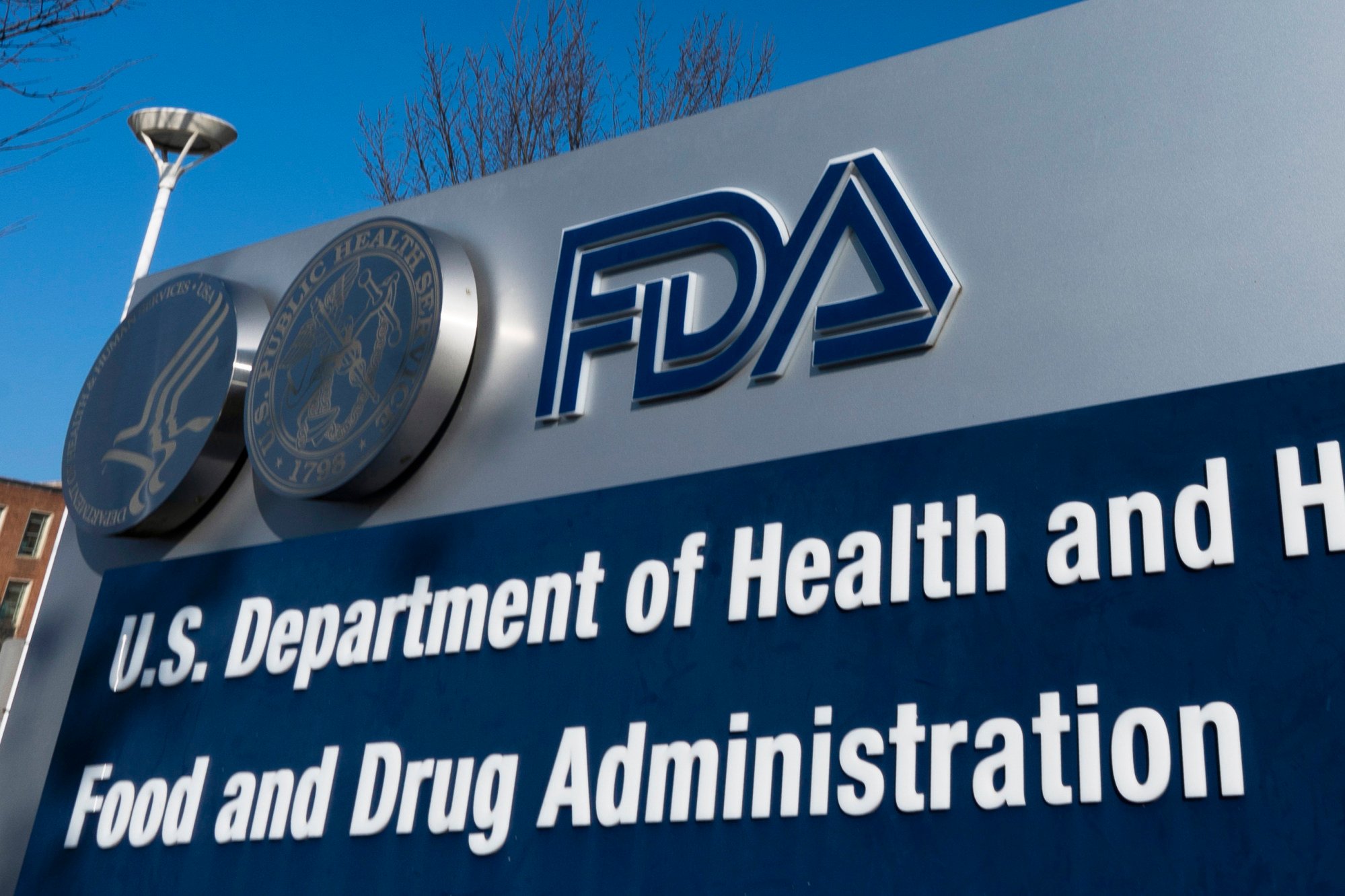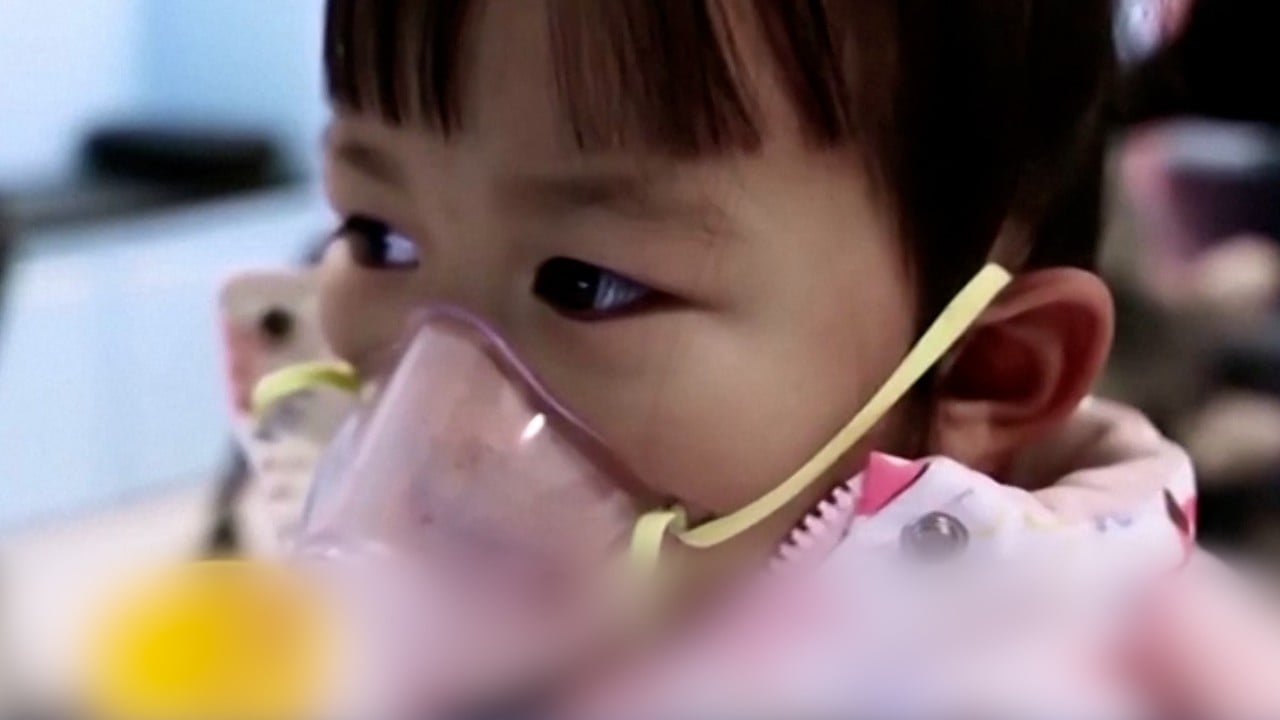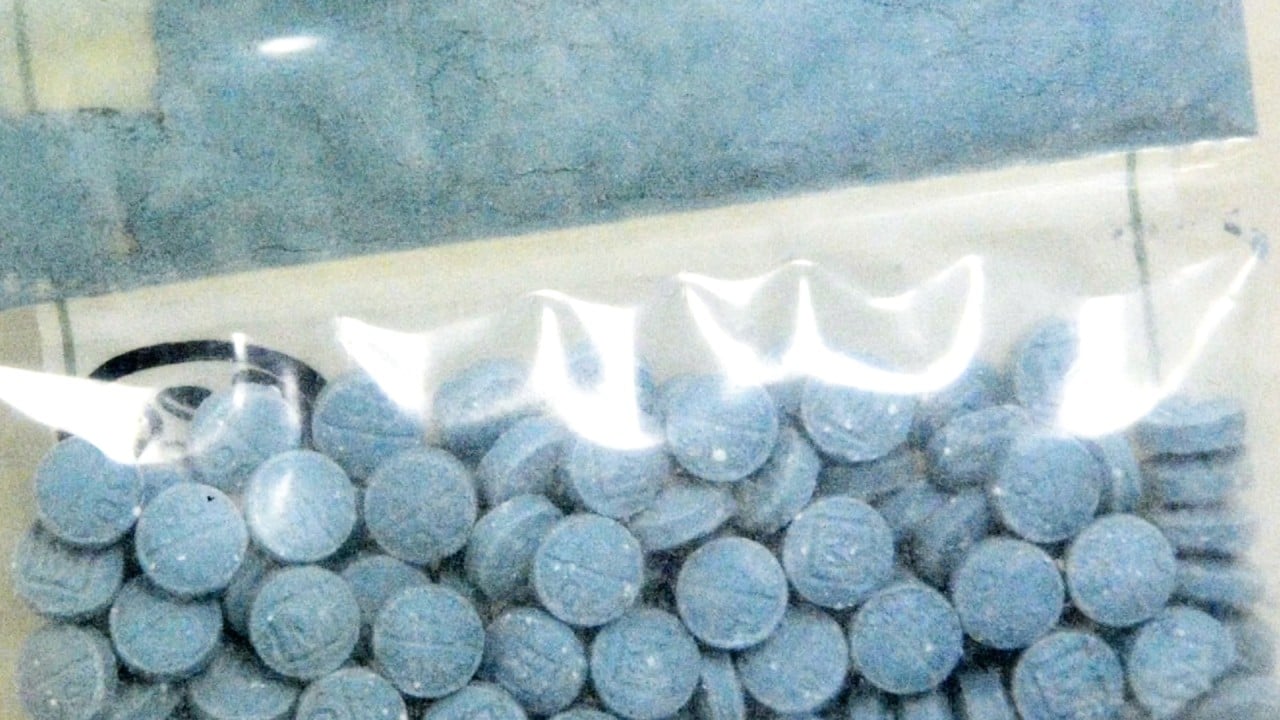
China’s new cancer drug Toripalimab is approved in the US but will cost 30 times more
- In China, a single-dose vial costs US$280 but in the US it will have a wholesale price of US$8,892
- Following the approval by the Food and Drug Administration, two more Chinese-made cancer drugs have received approval for distribution this month
A cancer drug developed by Chinese scientists and recently approved by the American Food and Drug Administration (FDA) will cost over 30 times more in the United States than in China, with two other Chinese cancer drugs set to experience similar price bumps in the US market.
However, even with the huge price mark-up in America, the Chinese cancer drugs will still be priced significantly less than similar drugs sold in the US.
In China, the cost of a single-dose vial of Toripalimab is around 2,000 yuan (US$280), according to Chinese cancer informational websites. The wholesale cost of a single-dose vial in the US will be US$8,892.03, Coherus wrote in a filing to the US Securities and Exchange Commission on Monday. The American price is more than 31 times the price of the same drug marketed in China.
The raised price will still be 20 per cent less than Keytruda, America’s top selling PD-1 antibody drug – a type of inhibitor that helps keep the immune system in check – according to the FiercePharma analysis website.
In China, the price of the drug is based on enrolment into the national healthcare insurance system, and is not its wholesale price.
By the end of last year, 95 per cent of Chinese citizens were enrolled in the system with basic coverage – nearly universal access – according to the National Medical Insurance Administration.
The drug price spike is comparable to the illicit cocaine market. US media reports the American street value is 40 times that of the price in Colombia where the narcotic originates.
Following approval by the FDA for Toripalimab, two more Chinese-made cancer drugs have received approval for distribution in the US this month.

Efbemalenograstim alfa, an injectable drug developed by Evive Biotech, a global biopharma subsidiary of Hangzhou-based Yifan Pharmaceutical, received approval on November 16 to treat chemotherapy-induced neutropenia, or low levels of a type of white blood cells.
Fruquintinib, which will be marketed as Fruzaqla in the US by Tokyo-based Takeda Pharmaceutical Company, will also face a price bump similar to that of Toripalimab.
A box of 21 pills each containing 5mg of the drug is sold in China for around 7,500 yuan (US$1,050), according to Chinese medical news site Medical Valley. Its US wholesale price will be US$25,200 for the same amount of medication, according to a Takeda prescribing document, putting it at 24 times the cost in China.
Drug companies in the US have claimed the high cost of research and development is behind the price of drugs in the country, however a study published last year in the Journal of the American Medical Association challenged this idea.
The US has the highest prices for new drugs in the world, but the country’s federal health insurance agency historically has had no ability to negotiate these prices, according to the study.
The authors found that of the 60 drugs they studied – representing one-fifth of all drugs approved in their study time period of 2009 to 2018 – there was no association between estimated research costs and the drugs’ listed price.
“Drug companies charge what the market will bear,” the researchers said. This is influenced by demand for the drug, whether patients need to continuously take it, and existing market competition.
Chinese scientists develop early screening method for pancreatic cancer
When Toripalimab was approved, there was speculation the drug could be priced at a significant discount compared with its main competitor on the US market. This stemmed from pharmaceutical giant Eli Lilly promising that the Chinese PD-1 inhibitor they were seeking FDA approval for would come at a 40 per cent discount if approved.
But during an investor call after Toripalimab received approval, Dennis Lanfear, the chief executive of Coherus, said such a “heavily” reduced price was off the table, according to FiercePharma.
Keytruda, New Jersey-based Merck & Co’s main counterpart to Toripalimab, is also sold in China and its list price on entering the market was half its price in the US, according to FiercePharma.
Fruquintinib is an oral medication approved to treat patients with metastatic colorectal cancer, the first chemotherapy-free treatment option approved for patients with all types of the cancer in over a decade. It first received approval by the Chinese National Medical Products Administration (NMPA) in 2018.
Colorectal cancer – which begins in the colon or rectum – is the third most commonly diagnosed cancer and third leading cause of cancer related deaths for both men and women in the US, according to the American Cancer Society. Worldwide, colorectal cancer was the third most prevalent type, Takeda said in a press release on the medication.
“For more than a decade there has been limited innovation for patients with metastatic colorectal cancer,” said Teresa Bitetti, president of global oncology business at Takeda.
Colorectal cancer accounts for 7.8 per cent of all new cancer cases diagnosed in the US, and 70 per cent of patients with the cancer will experience metastasis – when cancerous growths spread beyond the colon and rectum – according to Takeda.
“Metastatic cancer patients often present with inoperable disease … we must evaluate and consider treatment options that will improve overall survival without compromising quality of life,” Cathy Eng, a doctor at Vanderbilt University Medical Centre, said in a HutchMed press release.
The approval of Fruquintinib is based on two trials with more than 1,000 patients. During the trials, those who received the medication with supportive care had double the amount of progression-free survival compared to those who received a placebo and supportive care.
Patients receiving Fruquintinib had their risk of death cut by 34 per cent, according to Takeda. The most common side-effect of the medication was hypertension, followed by hand-foot syndrome and elevated protein in the urine, according to the FDA.
For the three Chinese drugs approved by the FDA this month, rights to market the product in the US belong to other companies.
While Takeda will manufacture and commercialise Fruquintinib outside China, HutchMed will receive royalties on net sales, and could receive other payouts if major milestones are hit by the drug, HutchMed said.
Efbemalenograstim alfa – which will be marketed as Ryzneuta in the US by New Jersey-based Acrotech Biopharma – will help prevent the side-effects associated with low neutrophil levels, according to the company.
Having low neutrophil levels increases a patient’s risk of infection, and chemotherapy-induced low levels often happen in the weeks after treatment, according to the Centres for Disease Control and Prevention.
Western drug makers pivot to India as China becomes ‘less attractive option’
The drug, which was approved by China’s NMPA in May, has undergone 12 clinical trials involving more than 1,200 patients across the world, and found to be effective in cutting the time patients experience severe low neutrophil levels, Acrotech said.
“China has already caught up [with the West]. As long as a product is available overseas, Chinese companies will produce even more,” Wang said.



